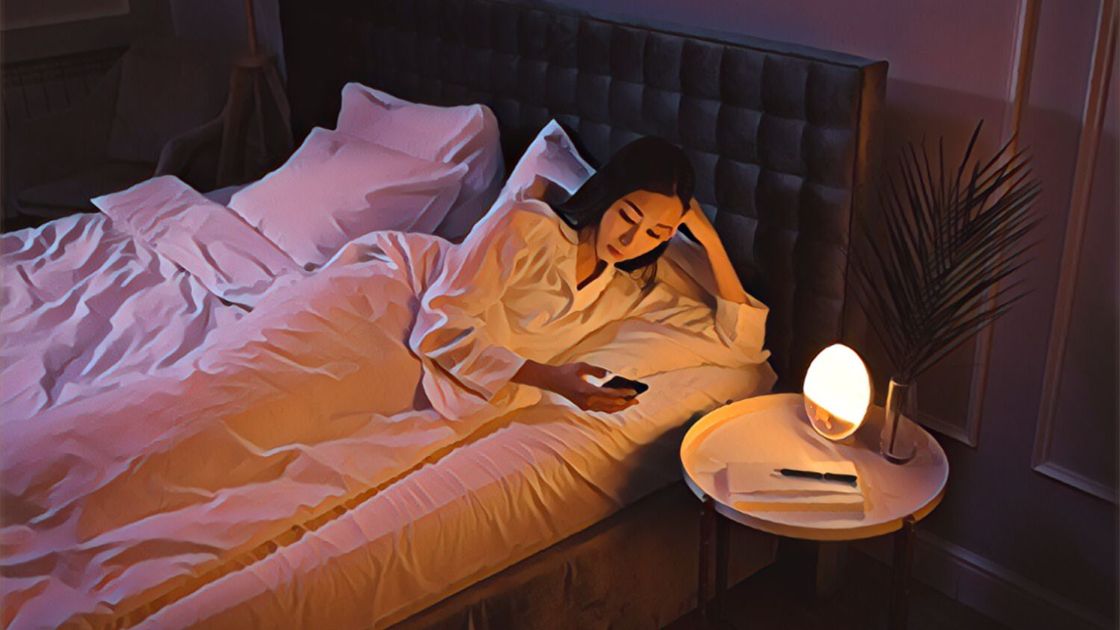Causes of Insomnia: Genetics and Solutions
Everyone, at some point, knows the pain of a sleepless night. For some, though, this is an all too frequent occurrence.
A few quick facts:
10% of adults (and 22% of the elderly) have insomnia disorder [ref]
Heritability estimates from twin studies show that insomnia is around 50% genetic; genes lend susceptibility along with environmental factors.[ref] Another study broke this down further, finding that most genetic influence is on the type of insomnia where people have a hard time staying asleep rather than difficulty falling asleep. [ref]
80-90% of people with major depression experience insomnia of some sort, with about half of them experiencing severe insomnia.[ref]
Insomnia can be either a problem with initially falling asleep or with waking up in the early morning hours and not being able to fall back to sleep. There are several terms applied to different types of insomnia:
- Sleep onset insomnia – problems with falling asleep
- Early waking (terminal insomnia) – waking up too early and not falling back to sleep
- Sleep maintenance insomnia – waking up one or more times in the night and struggling to get back to sleep
Is there an “Insomnia Gene”?
While twin studies strongly point to genetic variants playing a role in insomnia, there isn’t any one gene that causes people to get insomnia. It is more complex than that; several different genetic variants combine with environmental factors (light, diet, stress) to cause those sleepless nights.
Let’s take a look at the genes that have been identified as increasing the risk of insomnia in combination with specific situations.
GSK3B gene:
GSK3B is a gene associated with both circadian rhythm and mood disorders. A variant of GSK3B, rs334558 (G allele, v4 v5), has been associated in a recent study with an almost doubled risk of severe insomnia in depressed patients. These patients also had a greater insomnia response to antidepressant therapy.[ref] Note that this gene is also affected by lithium, affecting bipolar disorder.
PER2 gene:
One of the core circadian clock genes, PER2, has links with insomnia.
CLOCK Gene:
The CLOCK gene variant known as 3111T/C (rs1801260) has been fairly well studied. The G allele* is found in about 23% of the population and is associated in many studies with being more active in the evening. Studies have shown that people who carry the G allele of CLOCK rs1801260 may have dampened amplitudes of circadian rhythm functions, such as decreased body temperature function and a less stable circadian pattern.[ref] This may lead you to think that the G allele would be associated with insomnia, but this is not necessarily the case…
A study of women (post-menopausal) who had insomnia found that those carrying the CLOCK gene variant (3111T/C) A/A genotype* had higher melatonin levels in the early morning and lower nighttime melatonin levels, the opposite of what it should be… A/A is the most common genotype, so another way of looking at this is that the G allele is protective against insomnia.[ref] Another recent study of Caucasian women also found that the A/A genotype is more frequent in people with insomnia. (*plus orientation to correspond to 23andMe data)
Insomnia Genotype Report:
Lifehacks:
Basic sleep techniques are the first place to start. Seriously – get all of these in place before resorting to drugs, etc.
- Sleep in a cool room (drop your body temperature to go to sleep)
- Keep it dark at night (blackout curtains are wonderful)
- No electronics before bed (or blue-blocking glasses)
- Consistent bedtime routine (same time, every night, even weekends)
If you are rolling your eyes, thinking that you have done all that with no results, read on…
Here are some suggestions based on studies that fit with the above genetic causes:
Block blue light at night for CLOCK gene variants:
If you aren’t already wearing blue-blocking glasses, get a pair and wear them every evening for a couple of hours before bedtime. Be consistent, and give it a good week or two. A study of insomnia patients in a controlled clinical cross-over trial found that blue-blocking glasses worn for 2 hours before bed for seven days increased total sleep time, overall quality, and soundness of sleep.[ref]
Ensure Vitamin A sufficiency:
Several studies have found that vitamin A deficiency changes (and dampens) circadian rhythms. So ensure that you are getting enough vitamin A in your diet. Check your genes to see whether beta-carotene is a good option for you or if you are better off getting Vitamin A from animal sources.[ref][ref] Be sure to also get adequate sunlight for vitamin D if you are taking a vitamin A supplement.[ref]
Related Articles and Topics
DEC2 Gene: Short Sleep Mutation
Are you naturally a short sleeper? Mutations in the DEC2 gene decrease the need for sleep.
Restless Leg and Periodic Limb Movement Disorder: Genes and Solutions
Many know the frustration of disrupted sleep due to RLS and periodic limb movement disorder (PLMD). Genes play a role in your risk for these disorders, and there are specific research-based treatments to explore.
BMAL1: Core circadian gene with links to heart disease, cancer, and diabetes
A core circadian rhythm gene, BMAL1, influence heart disease risk, diabetes, and cancer. Check your genes and learn how to mitigate the risk.
Genetics and Color Blindness
Do you have difficulty seeing some colors? Discover how variants in genes related to color blindness may mean we all see things a bit differently.
Debbie Moon is the founder of Genetic Lifehacks. Fascinated by the connections between genes, diet, and health, her goal is to help you understand how to apply genetics to your diet and lifestyle decisions. Debbie has a BS in engineering from Colorado School of Mines and an MSc in biological sciences from Clemson University. Debbie combines an engineering mindset with a biological systems approach to help you understand how genetic differences impact your optimal health.

